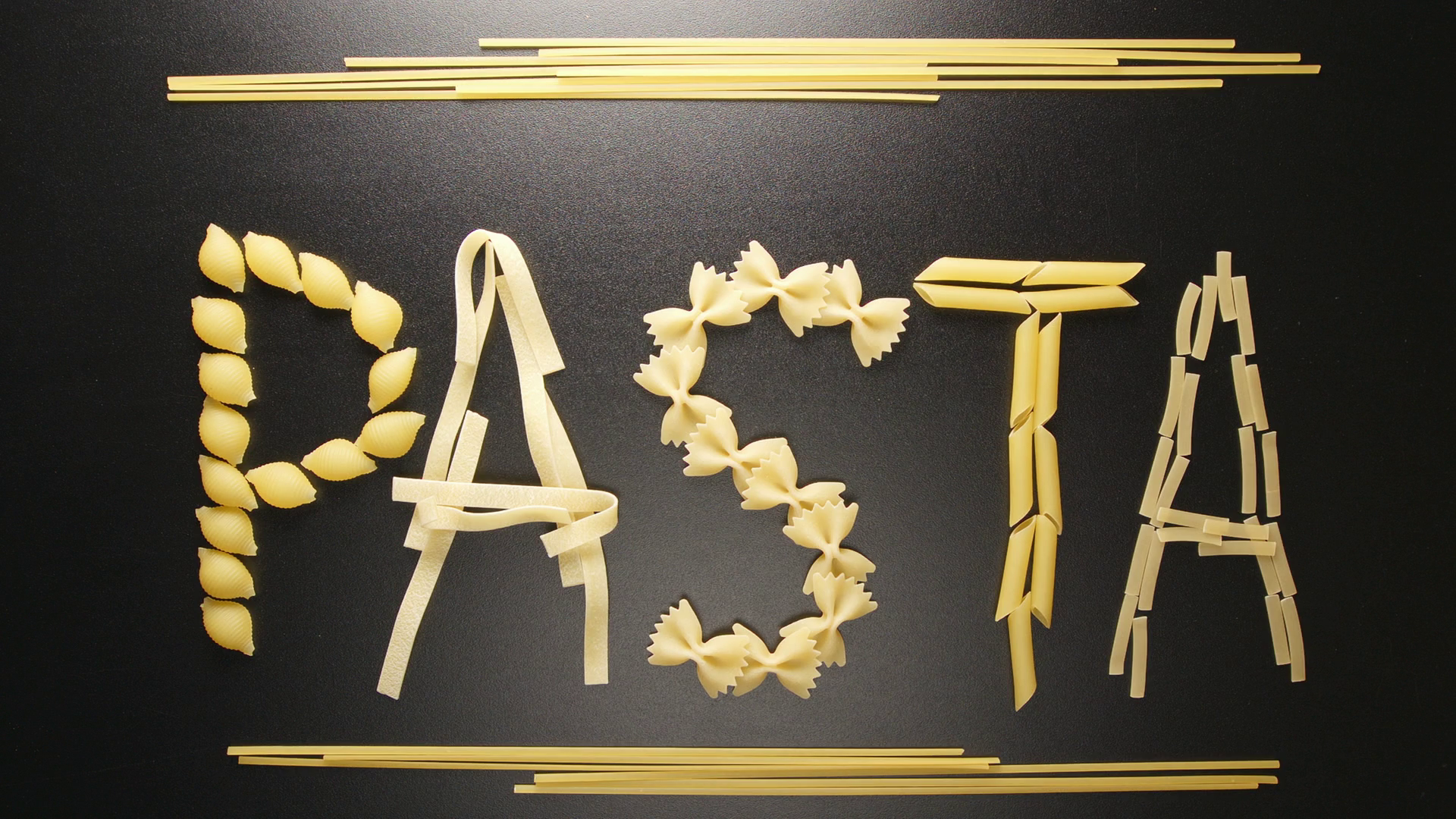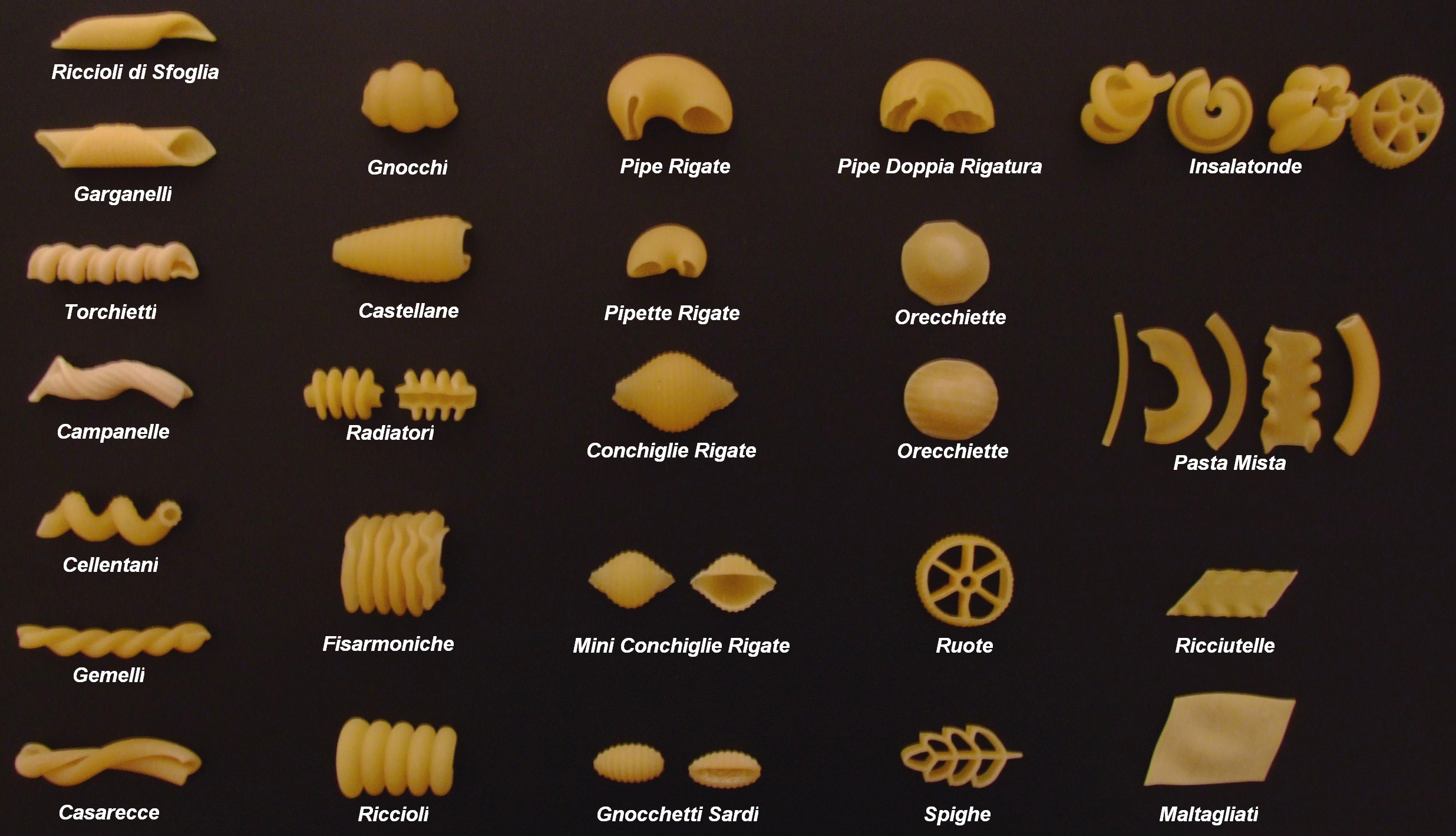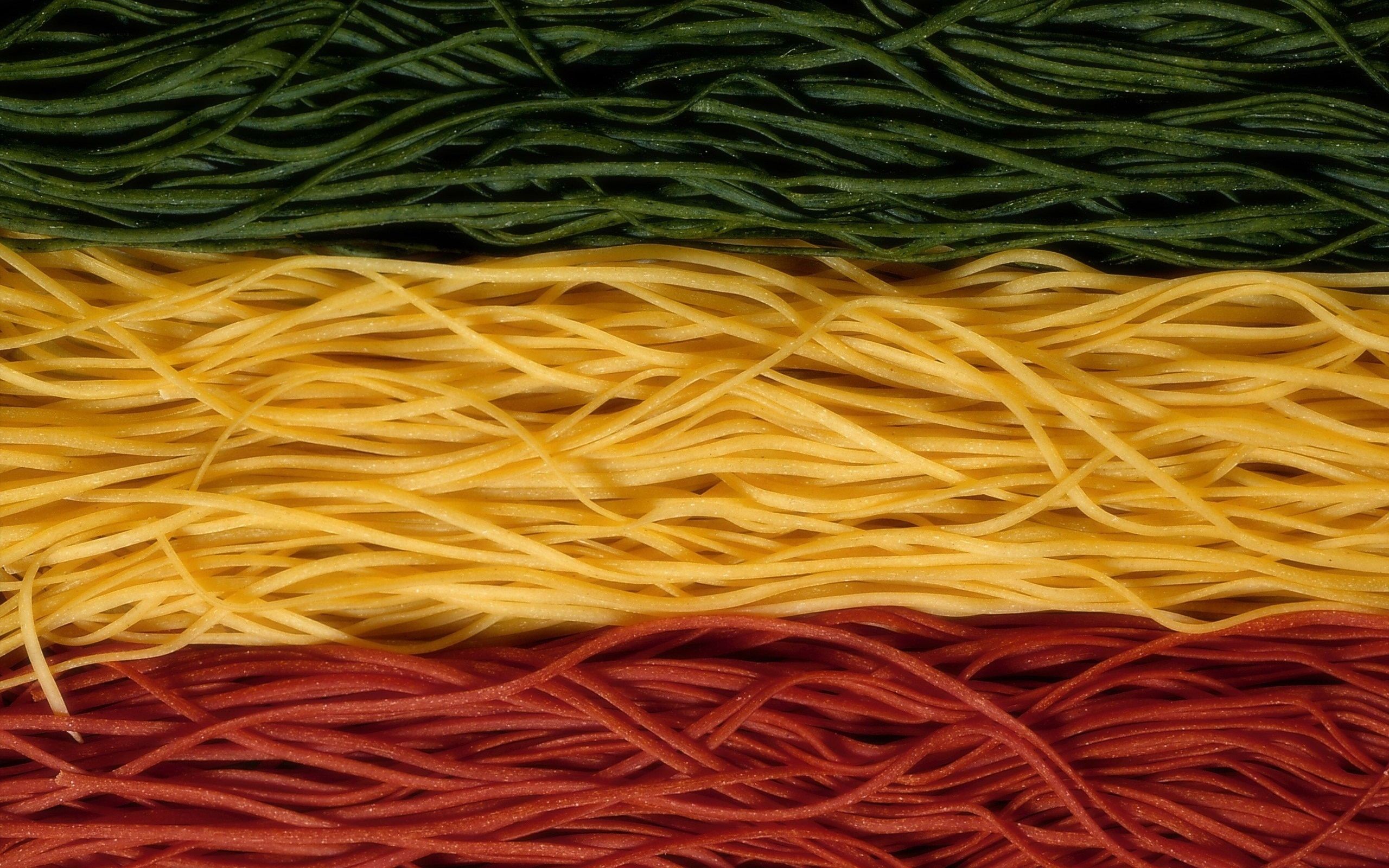
Although pasta is commonly thought of as originating in Italy, its true origins are unknown. It is believed, however, to have derived from the Asian noodle and was supposedly brought to Italy by Marco Polo in the 1200s. Regardless of where it came from, it is known today as being an Italian food and can be found in any Italian restaurant or home. It is made with flour mixed with water and egg, then cooked by boiling it in water. Once cooked it can be mixed with different ingredients and sauces to make an unlimited amount of dishes. If you would like to learn a little more about the different types of pasta and how to start making them, continue reading.
Pasta can be found in many shapes, sizes, and forms. The cooking time is based off of these attributes. The names for different pasta shapes are often the Italian translation for what they look like. The following image shows the name of some pasta shapes and the table next to it contains some examples of the most popular pasta shapes and their translations.

| Shape | Translation |
|---|---|
| farfalle | butterflies |
| fusilli | little spindles |
| gemelli | twins |
| linguine | tounges |
| orechiette | little ears |
| penne | pen |
| rotelle | wheel |
| rotini | small wheels |
| spaghetti | thin strings |
| vermicelli | worms |
Pasta is easily accessible at any grocery store in the United States or in can be made freshly at home with a few ingredients you may even already have. The following video by Allrecipes explains how to make homemade pasta.
Making a plate of pasta good enough to make the Roman gods sing is not difficult and you could get started right away! Click the following link for an easy recipe to make for yourself and possibly some guests.
Easy Spaghetti alla Puttanesca RecipeIf you decide to make gli spaghetti alla puttanesca from the recipe above, make sure you have the following items:
Now that you've learned how to make pasta, you're next step to authenticity is learning how to properly pronounce the names of the different shapes. The following video explains the proper pronunciation of some popular pasta types.
